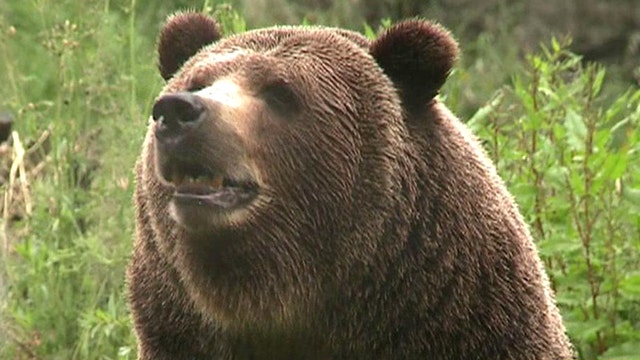On a recent visit to a laboratory where he researches obesity, Kevin Corbit walked over to one of the patients he is studying to say hello. Then he clasped a claw.
Dr. Corbit, a scientist at drug maker Amgen Inc., is conducting his research on grizzly bears. He believes insights gleaned from the animals, who can take in as much as 58,000 calories in a day and weigh 1,000 pounds, could reshape understanding of obesity and identify new treatments for a condition that has stymied doctors and drug developers.
"When I thought about obesity, I thought about Yogi bear," Dr. Corbit says.
Ursus arctos horribilis isn't the typical lab rat. A grizzly can lift a heavy tree trunk—with one paw. In the wild, the bears win duels with wolves and mountain lions. They are powerful enough to tear through the side of a barn or even crush a small car. Also, the bears growl.
But bears do know a thing or two about weight gain, and that makes them more like people than rats whose genes are manipulated to make them obese.
In the weeks before hibernating, bears pack away enough apples, berries and salmon to put on 100 pounds or more under their brown fur. Their bad cholesterol jumps and blood pressure spikes.
But unlike humans, their health doesn't suffer. Bears' arteries don't clog from the gorging, nor do the animals battle heart attacks or turn into diabetics. To figure out why, the researchers draw the bears' blood, biopsy their fat deposits and listen to their hearts—carefully.









































